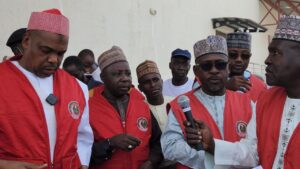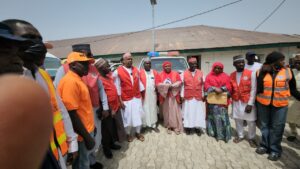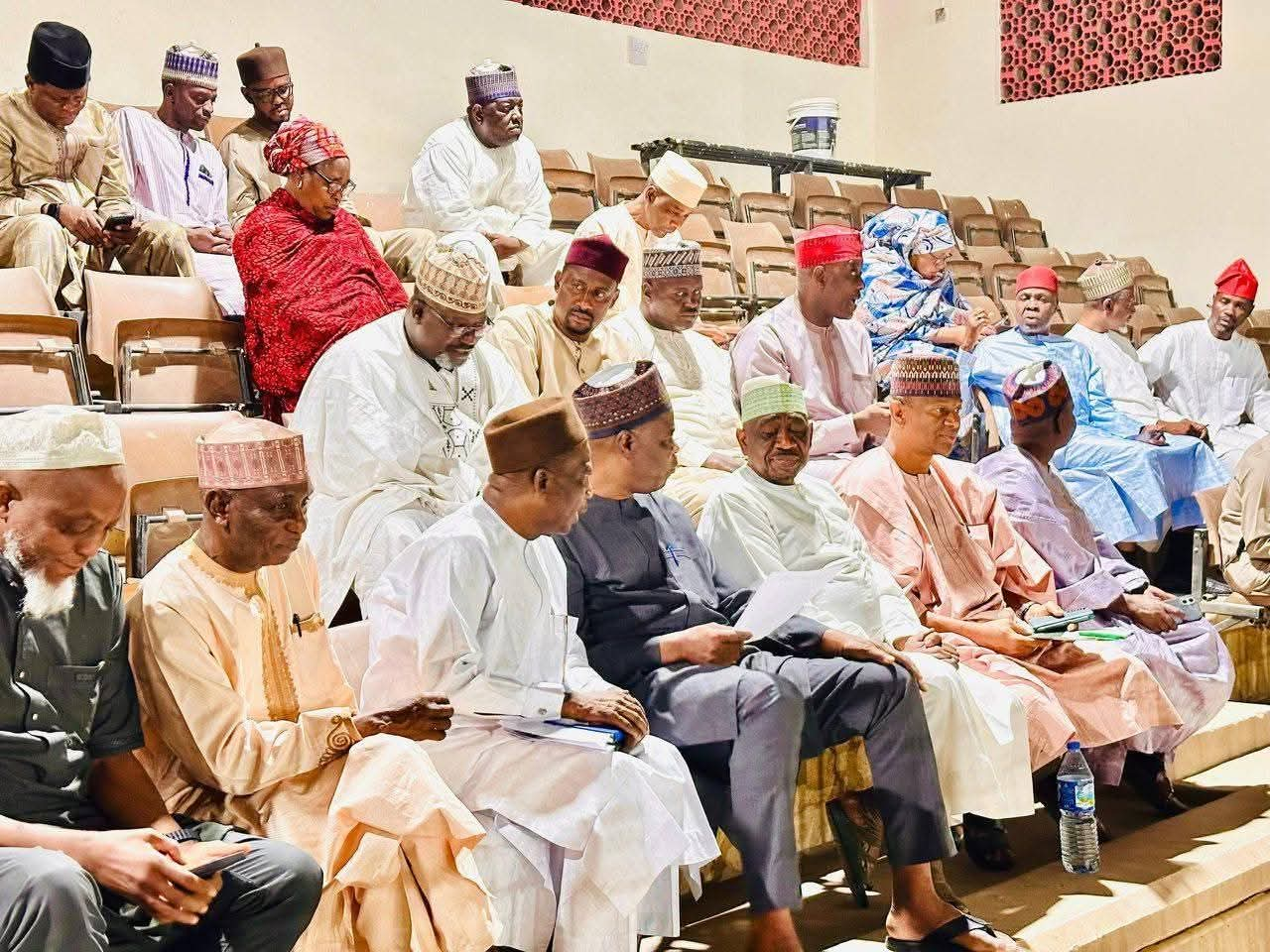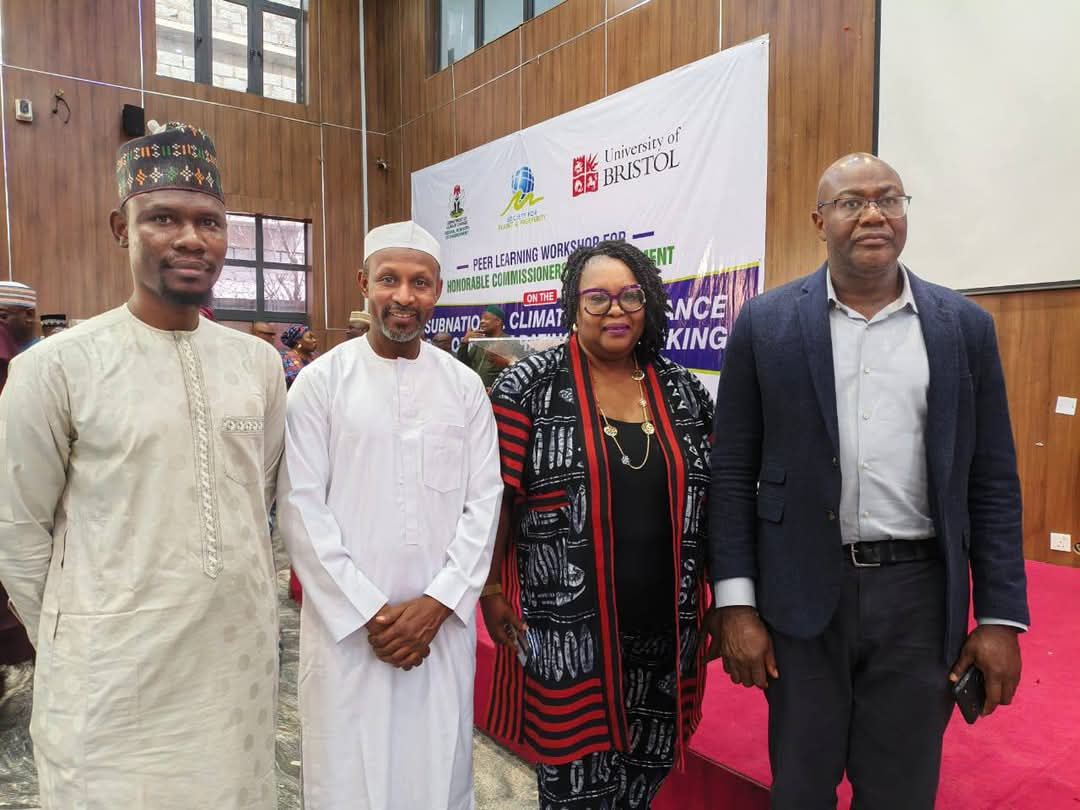News
OPEC says Dangote refinery’s diesel, jet fuel supplies to disrupt Europe’s oil & gas industry

Nasiru Yusuf Ibrahim
It is a big plus to Nigeria’s economy
The Organisation of Petroleum Exporting Countries, OPEC, has said supplies from Nigeria-based world’s largest single-train Dangote Refinery and Petrochemicals will put pressure on the performance of Europe’s oil industry, especially the Northwest Europe (NWE) Gasoil.

KANO FOCUS reports that OPEC in its newly released monthly Oil Market Report for June 2024 listed Dangote Refinery among the top Diesel and jet Fuel suppliers that will disrupt Europe’s oil & gas Industry, a development experts forecasted will positively impact the Nigerian economy.
It would be recalled that Standard & Poor Global quoting trading and the ship tracking sources had earlier predicted that Nigeria’s $20 billion Dangote refinery would shake up international crude flows when it reaches full capacity, having already made an impact since coming online in January, trading sources and ship tracking data show.
The OPEC report revealed that “Upside potential for higher production levels from Nigeria’s Dangote refinery, coupled with strong flows from the Middle East and new supplies from the Mexican Olmeca refinery, will likely exert pressure on NWE gasoil performance in the mid-term.”
It stated further “Europe is one of the world’s largest purchasers of refined petroleum products and relied on imports from Asia and the US after the European Union banned the use of Russian diesel in the bloc.
However, the 650,000bpd capacity refinery which is owned by the Africa’s richest man, Aliko Dangote, is eyeing the wider European market after International Oil Companies stopped supplying its crude oil.
Vice President of Oil and Gas at Dangote Industries Limited, Devakumar Edwin announced the company had earlier exported its first jet fuel cargo to Europe as it rapidly scales production.
The refinery is said to have exported 90 percent of its 3.5 billion litres of jet fuel and diesel to Europe over alleged lack of support from the Nigerian government.
“It is good to note that from the start of production, more than 3.5 billion litres, which represents 90 percent of our production, have been exported,” Edwin said
BP is currently transporting its first jet fuel cargo to Rotterdam from Dangote, after being awarded part of a 120,000 metric tonnes tender offered for the end of May, according to S&P Global.
OPEC stated that, “In June, the jet/kerosene crack spread in Rotterdam against Brent showed a slight decline, influenced by supply-side dynamics. Despite signs of improving air travel activities, subdued jet fuel demand from the aviation sector weighed on the product market
“Going forward, European jet/kerosene demand is expected to see upward pressure as consumption levels from the aviation sector continue to pick up in the coming months.”
S&P had noted that Dangote Refinery in its first six months, scaled to 400,000 b/d and delivered diesel, jet fuel, naphtha, and fuel oil to both domestic and export markets, with Gasoline, Nigeria’s primary fuel type, being expected to be produced from mid-August
Notwithstanding, the refinery has already affected crude flows, with dozens of Nigerian cargoes remaining in-country and US WTI Midland, a comparable light, sweet grade, being imported
The mega-refinery could therefore tighten the light, sweet crude market. “Its diet is WTI and the lighter Nigerian [crudes] so if you were chasing those barrels you’d probably feel it quite keenly,” a West African crude trader told Commodity Insights. “Once they get to 650,000 b/d without any WTI Midland, ‘severely disrupted’ [will be] the headline.”
WTI Midland crude initially emerged as the favored feedstock to supplement Nigerian supply, with the refinery signing long-term supply contracts for the US grade and noting its competitive pricing. Platyts, part of Commodity Insights, last assessed WTI Midland into Rotterdam at $82.36/b on July 31, while Nigeria’s Bonny Light was assessed at $82.80/b on the same day.
Crude flows in and out of the Dangote refinery have been felt in other markets, especially in Europe, the largest consumer of light, sweet Nigerian crude. The US grade has accounted for 30% of crude delivered to Dangote, through 18 cargoes
President of Dangote Group, Aliko Dangote said the facility would broaden its feedstock sources with Libyan, Angolan, and Brazilian crude.
“The refinery was built to use Nigerian crude and add value to it within Nigeria. Why should we deviate from that focus?” said Dangote, adding that the crude supply issues were “getting resolved”, but that the refinery remained open to all opportunities “to supplement it”.
“Dangote refinery is designed to process a range of light and medium grades of crude oil, including Nigerian grades,” said Rasool Barouni, Associate Director and head of Refining at S&P Global Commodity Insights. “Other similar grades including other WAF

Headlines
Kano rolls out emergency medical services, deploys 20 Ambulances

Nasiru Yusuf Ibrahim
Kano State on Tuesday rolled out the State Emergency Medical Services and Ambulance System (KN-SEMSAS) as part of efforts to strengthen emergency response and improve access to timely healthcare across the state.

Speaking at the ceremony, the Commissioner for Health, Dr. Abubakar Labaran Yusuf, commended the governor for procuring 20 ambulances for the programme, describing the initiative as a strategic step to align the state with ongoing national emergency health interventions. He noted that a formal inauguration of the scheme would be held at a later date.

Dr. Abubakar Labaran Yusuf
Dr. Yusuf said the ambulances would play a critical role in transporting pregnant women to hospitals during labour, thereby reducing maternal and infant mortality. He added that any patient conveyed to a hospital through the scheme would have their transportation costs covered by the government.
He also called on members of the Guild of Medical Directors to support the initiative by procuring additional ambulances to complement government efforts.

Dr. Abubakar Labaran Yusuf inspecting the ambulances
According to the commissioner, the vehicles are expected to respond to distress calls within the shortest possible time, ensuring prompt medical attention for residents in need.
Dr. Yusuf further stated that KN-SEMSAS would provide free, coordinated pre-hospital and emergency care services statewide. He described the establishment of the system as a major milestone in strengthening emergency medical response, reducing preventable deaths, and improving access to life-saving care for the people of Kano State.
The event was attended by the Director-General of the Drugs and Medical Consumables Agency, Pharmacist Ghali Sule; the Executive Secretary of the Kano State Contributory Healthcare Management Agency (KASCHMA), Dr. Rahila Aliyu Mukhtar; and the Director-General of the Kano State Centre for Disease Control (KNCDC), Prof. Mahmoud Adamu Abbas.

Group Picture
Goodwill messages were presented by representatives of various stakeholders, including the Lafiya Project, the Kano State Accountability Mechanism (KanSLAM), and the Kano State Fire Service, among others.

Headlines
APC constitutes committees for Kano state congress

Nasiru Yusuf Ibrahim
The All Progressives Congress (APC) in Kano State has announced the constitution of three high-level committees to oversee its forthcoming State Congress scheduled for Tuesday, March 3, 2026.

KANO FOCUS reports that the congress is slated to take place at the Indoor Sports Stadium, Kofar Mata, Kano, at 8:00 p.m.
The disclosure was made in a statement issued on Monday by the Kano APC Spokesperson, Hon. Ahmad Aruwa, on the directive of the outgoing State Chairman, Hon. Prince Abdullahi Abbas Sunusi.
According to the statement, the committees were constituted to ensure a transparent, credible and well-coordinated congress in line with the party’s constitution and guidelines.
Congress and Accreditation Committee
The Congress and Accreditation Committee is chaired by Rabi’u Sulaiman Bichi, with Hon. Muhammad Jamu Yusuf serving as Secretary. Other members include Hon. Baffa Babba, Rt. Hon. Butu-Butu, Hajiya Sa’adatu Algon, Hon. Ali Haruna Makoda, Hon. Abdullahi Rogo, Hon. Baffa Takai, Hon. Lamin Sani, Sani Ma’aruf, Hon. Sani Bala, Khalid Ishaq, Barrister Mannir Rimin Gado and Hon. Hassan Hussain.
Publicity Committee
The Publicity Committee is headed by Muhammad Garba as Chairman, with Sunusi Bature Dawakin Tofa as Secretary. Members include Lawan Hussaini, Jamilu Danbatta, Yusuf Sharada, Musa Liliyasu, Ghali Sadiq, Binta Spikin, Uba Dan Zainab, Ibrahim Yaro and Ahmad Aruwa.
Security Committee
The Security Committee is chaired by Col. Malami. Other members are Mustapha Bakwana, the Director-General of Special Services, Bala Albasu, CP Balarabe Musa, Group Captain Kura, Dr. Garba Sani Diso and Air Commodore Yusha’u Sulaisu Tudun Wada.
Hon. Aruwa stated that the party leadership has full confidence in the committees’ ability to deliver a peaceful, orderly and successful congress.
He urged party members and stakeholders to cooperate fully with the committees and conduct themselves in a disciplined and responsible manner throughout the exercise.
The APC reaffirmed its commitment to strengthening internal democracy and consolidating unity within the party in Kano State.

Headlines
Kano emerges as MRV pilot state, advances climate governance

Nasiru Yusuf Ibrahim
Kano State has strengthened its position as a leading subnational actor in climate governance following a strategic departmental meeting of the Kano State Ministry of Environment and Climate Change.

KANO FOCUS reports that a major highlight of the meeting was the state’s intensified support for Nigeria’s Second Biennial Transparency Report (BTR2) under the United Nations Framework Convention on Climate Change (UNFCCC). The ministry disclosed that ongoing collaboration with sectoral ministries, departments and agencies (MDAs) across Energy, Agriculture, Forestry and Other Land Use (AFOLU), Waste and Industrial Processes is ensuring credible and harmonised greenhouse gas emissions data in line with the transparency requirements of the Paris Agreement.
In what officials described as a significant milestone, Kano has been selected as one of three pilot states under the UK PACT programme to develop a Measurement, Reporting and Verification (MRV) system. The initiative is expected to institutionalise structured emissions reporting, strengthen accountability mechanisms and support tracking of Nigeria’s Nationally Determined Contributions (NDCs).
In a statement signed by Dr. Umar Saleh Anka, Director of Climate Change, the ministry also announced the commencement of preparations for the third edition of the Climate Governance Performance Ranking. The exercise aims to enhance methodological rigour, promote peer learning, improve transparency and deepen stakeholder engagement in climate action.
Further consolidating the state’s leadership role, the Commissioner for Environment was recently appointed Regional Lead (North West) of the Community of Practice for Environment and Climate Change, a move expected to strengthen regional collaboration and policy coordination.
The statement added that, the state government reaffirmed its commitment to strengthening institutional systems, improving emissions transparency and advancing coordinated climate action across Nigeria.












